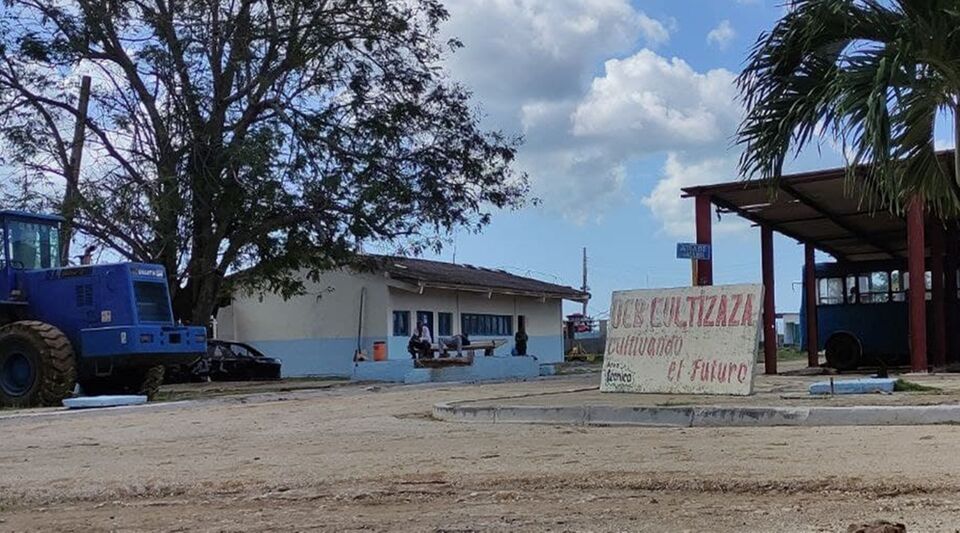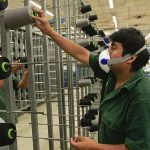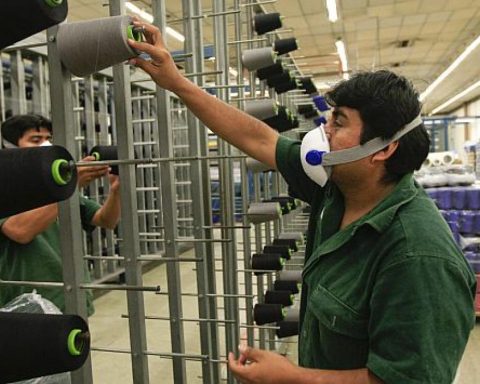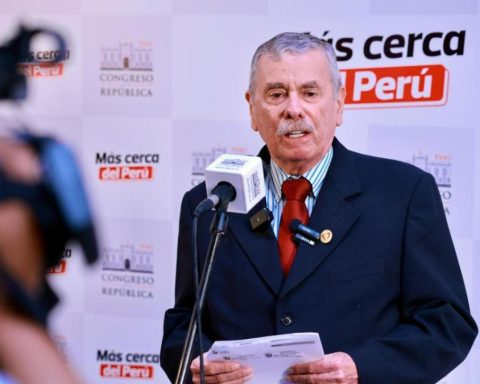Dozens of people flocked to the Cultizaza facilities in Sancti Spíritus on Monday to collect the shrimp that escaped from a burst tank. “Many people came and took shrimp even in their pockets”, says Yisel, a neighbor of Tunas de Zaza, where the state company develops the cultivation of this crustacean, in a large area and mainly for export.
Although it is a “restricted area”, the employees themselves notified the people in the vicinity so that the product would not spoil, which was ready to be harvested.
Some 50 or 60 people arrived, according to witnesses to the event, who joined the workers in the collection of the escaping shrimp. “The problem is that it is not so close to the town. Those who came were men who had something to carry or bicycles,” says Rafael, one of the locals who were lucky enough to hear the news. “But people came from El Salado and even from Guasimal”, some 20 kilometers from the coast.
“The problem is that it is not so close to the town. Those who came were men who had to carry or bicycles”
Neither the official press nor company officials have spoken about the incident. A worker who requests anonymity says that although Cultizaza tried to recover the maximum amount of product, “between 15 and 20 tons may have been lost.”
He also refers that the retaining walls of the gigantic reservoirs where the crustacean is cultivated are very thin and “have been in operation for a long time without maintenance.” “They emptied the pond next door and the pressure of a meter and a half high burst them,” he explains. “When two contiguous tanks are full they are compensated, but they emptied the one next to it and it could not hold.”
In any case, he assures, sabotage is not ruled out as a line of investigation.
“The conditions do not exist to store all that shrimp scattered like that out of the blue,” says another source, familiar with the company.
Be that as it may, Cultizaza has been in crisis for a long time. Last year, with the passage of Hurricane Eta, the problems of the shrimp farm became evident. Then, the authorities were quick to report that, although the cyclone did not cause damage to the infrastructure of the facilities, the development of the species would be affected “due to the water turbidity with which the ponds are supplied “.
The problems, local workers confessed to this newspaper, they came from far away and they were deeper: in the absence of balanced feed, the fish farm made use of the little that is produced in the province, the tilapia, previously turned into dust. With two disastrous consequences: that “the shrimp does not grow at a good rate and also the consumers do not receive the tilapia.”
Last September, the authorities announced with their usual pomp the expansion of the shrimp farm, informing that they would enable 10 hectares of land until then in disuse to dedicate them to intensive shrimp farming, which allows a greater number of animals per square meter to be fattened.
This technique, as stated to the official press the director of Cultizaza himself, Luis Orlando Rodríguez, has not developed in this place “for more than 20 years”.
“It was not so well,” says another worker from the shrimp farm. “They made two ponds, rearranged, improved, but nothing new.”
“The conditions do not exist to store all that shrimp scattered like that out of the blue”
However, Rodríguez had stated that this year “the first ponds will be ready” and that in 2022 they would recover “another 15 hectares also destined for intensive development, which would be added to the 345 that are currently in operation.”
The official said that the new work areas would have “imported equipment”, and that next March they would be producing “about 250 tons in two production cycles”, despite the fact that in 2021 crustacean farming has only reached 62% of the plan expected, due to “low water quality”, and lack of “material and energy resources”.
What is a fact is that workers and neighbors of Cultizaza will have, in the absence of pork, seafood by the end of the year. “We are going to spend a week eating shrimp enchilado,” Yisel concludes sarcastically.
________________________
Collaborate with our work:
The team of 14ymedio He is committed to doing serious journalism that reflects the reality of deep Cuba. Thank you for joining us on this long road. We invite you to continue supporting us, but this time becoming a member of our journal. Together we can continue transforming journalism in Cuba.
















